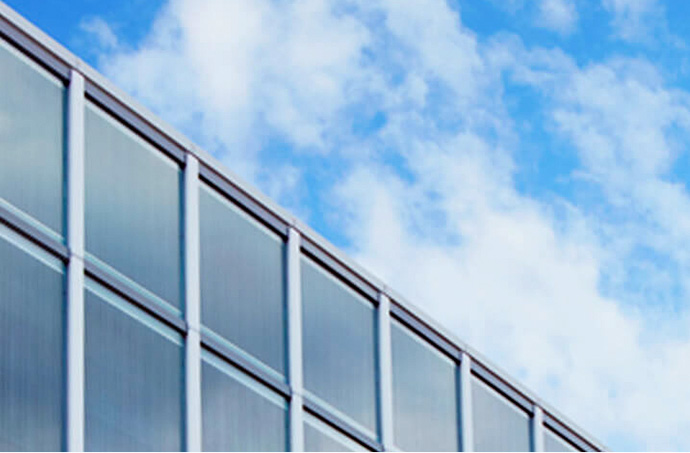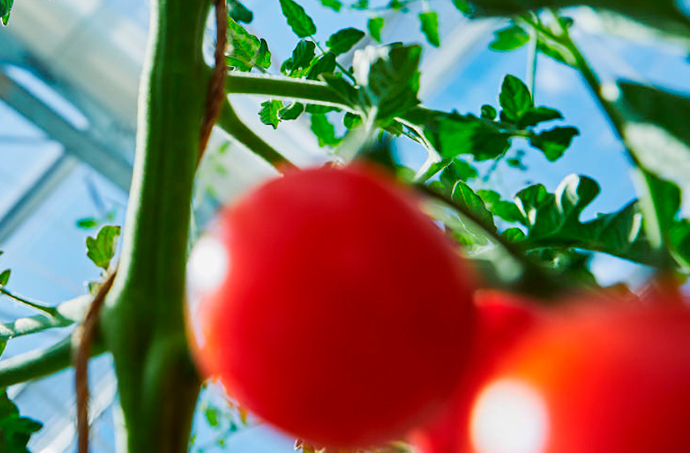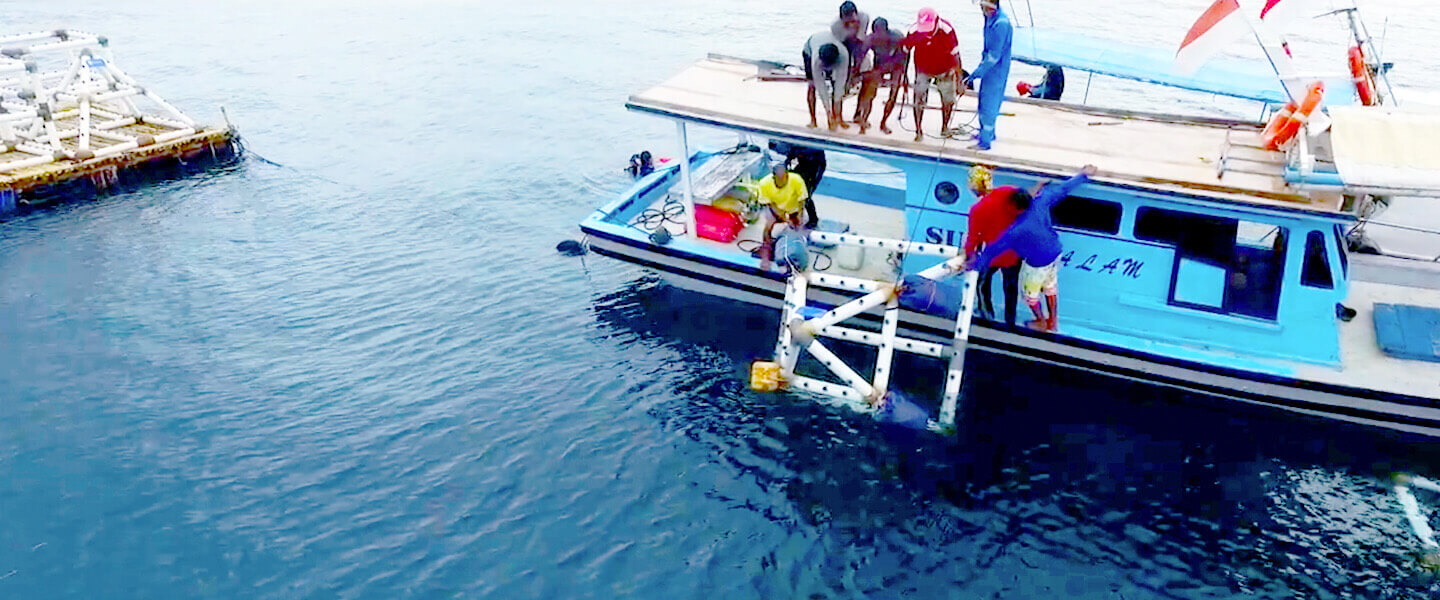
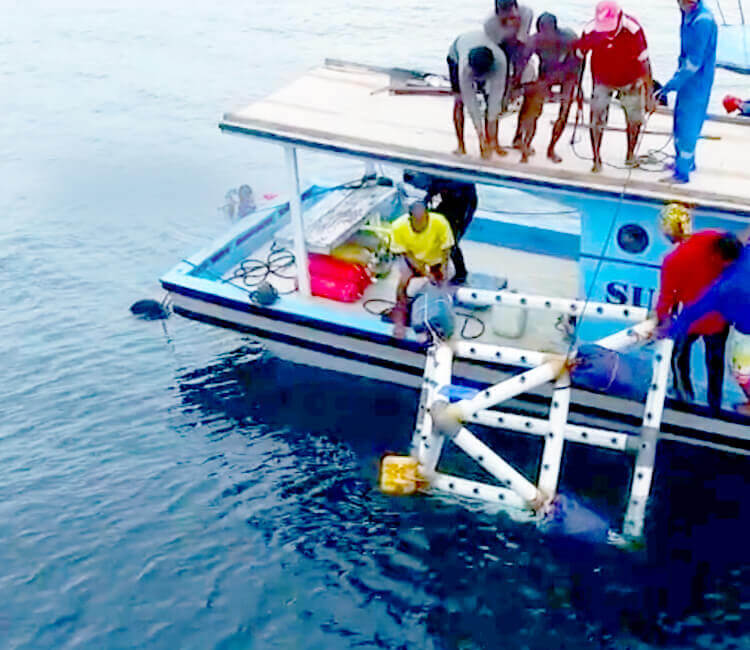
Technology reshapes the relationships between humans and nature in a coral reef protection project
- #Sustainability
Southeast Asia is known as one of the best tourist destinations for those wanting to enjoy beautiful beaches and oceans, but it has faced severe marine pollution and destruction for the past few years. The coral reefs, where sea creatures live and spawn, are being threatened with significant disruption even though they are essential in maintaining a healthy marine environment.
AGC has been working on Coral Reef Restoration projects in Southeast Asia including Thailand and Indonesia.
This article features Asahimas Chemical (ASC), one of the group companies of AGC in Indonesia. It has been collaborating with the Indonesian Foundation for Biodiversity (KEHATI) to rehabilitate coral reefs in Sangiang Island since 2016. Here explains the project and the impact it has on the local environment in the country.
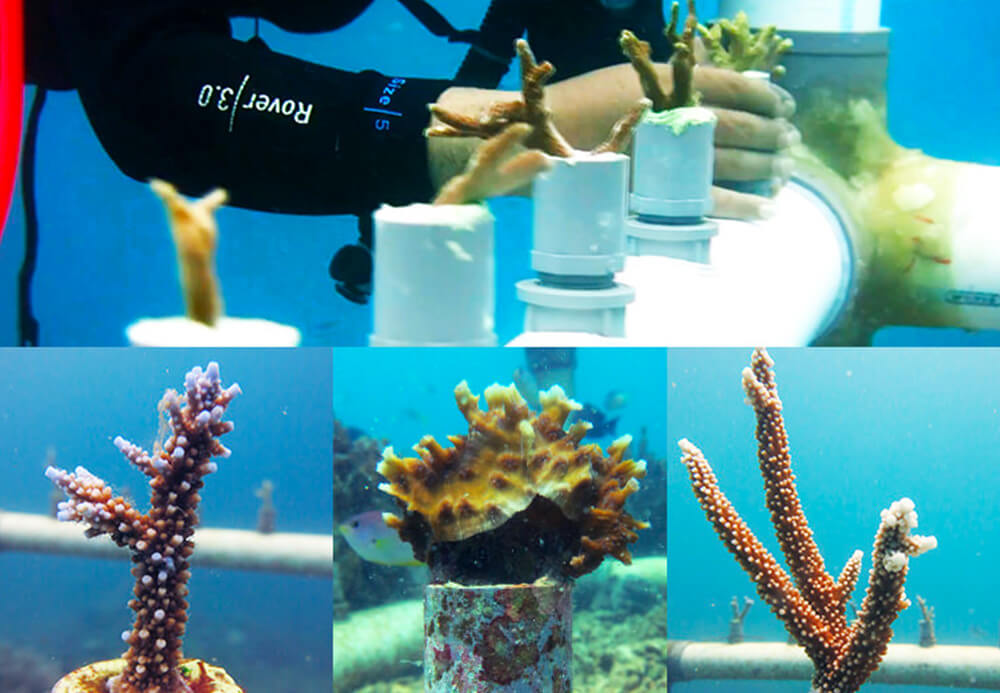
Sangiang Island is a designated national marine sanctuary located between the islands of Java and Sumatra. As a tourist destination it is famous for scuba diving, free diving, and snorkeling. Local people live in Anyer and Cikoneng villages in Java island, which is 17 km from Sangiang Island, making a living through fishing or by providing tourism services like boat tours or by running lodges, small shops, and coffee shops.
However, due to the recent coral reefs’ destruction, the fish catch has fallen, preventing the local fishermen from making enough money through fishery. It has also caused a decline in the number of tourists, putting the local economy at risk.
In order to tackle this problem, ASC has been participating in a coral reef rehabilitation project, by using their polyvinyl chloride (PVC) material as a planting medium for the growth of coral reefs.
PVC is a lightweight and durable material that can be easily shaped and used in various ways including water pipes, daily households, and electronic devices. Cement is commonly used to support reef growth, but PVC is less expensive, allowing new platforms to be created more easily.
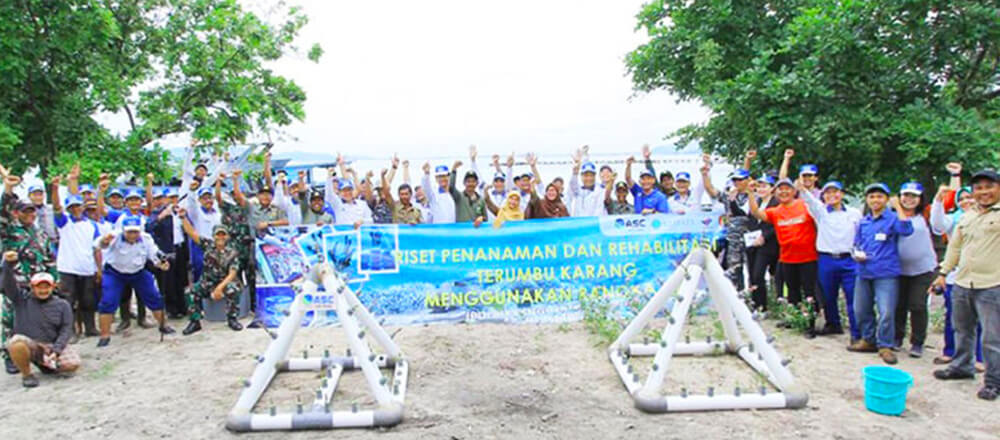
The project has already seen steady results. Coral reefs have grown for 1-1.5 cm over 8 months — faster than the normal growth speed. A species of fish not observed in the area since 2016 has also returned. The number of tourists for scuba diving and snorkeling has increased by around 40%, improving Sangiang’s tourism economy.
The project has also helped local fishermen develop a positive attitude towards the marine environment. They have learned to stop destructive fishing methods previously employed, such as using explosives or carelessly dropping anchors. Thanks to the individual efforts of each fisherman, a tremendous difference has been made and the area has become a new popular fishing location.
If the project continues to improve the marine environment, fisheries and tourism will prosper and local life will also benefit, eventually bringing sustainable life for both the local people and nature.
As the fishermen in Sangiang changed their behavior towards the ocean, working on an environmental project has given us an opportunity to rethink our attitude toward nature. With the group-wide knowledge and technology, the AGC Group continues its maritime conservation activities in countries like Indonesia and Thailand. AGC hopes to play a role in building a future where nature and humans cohabit in harmony.







